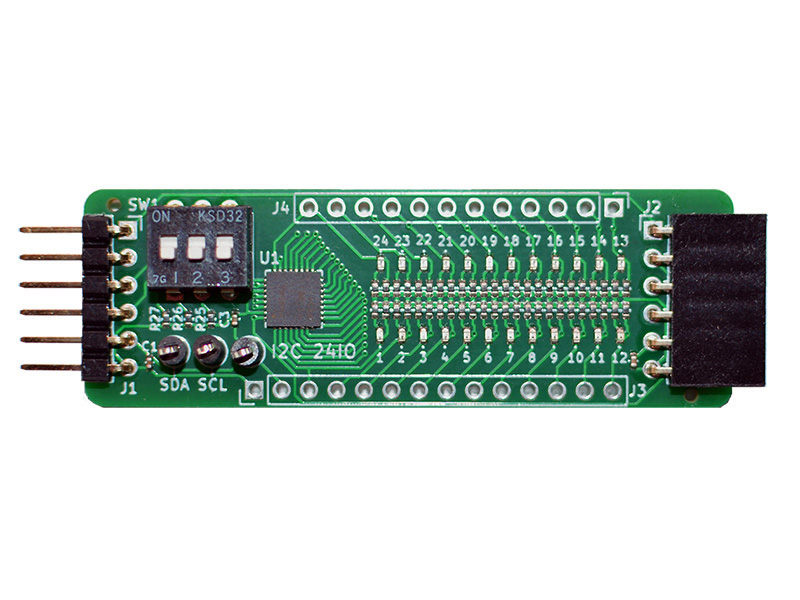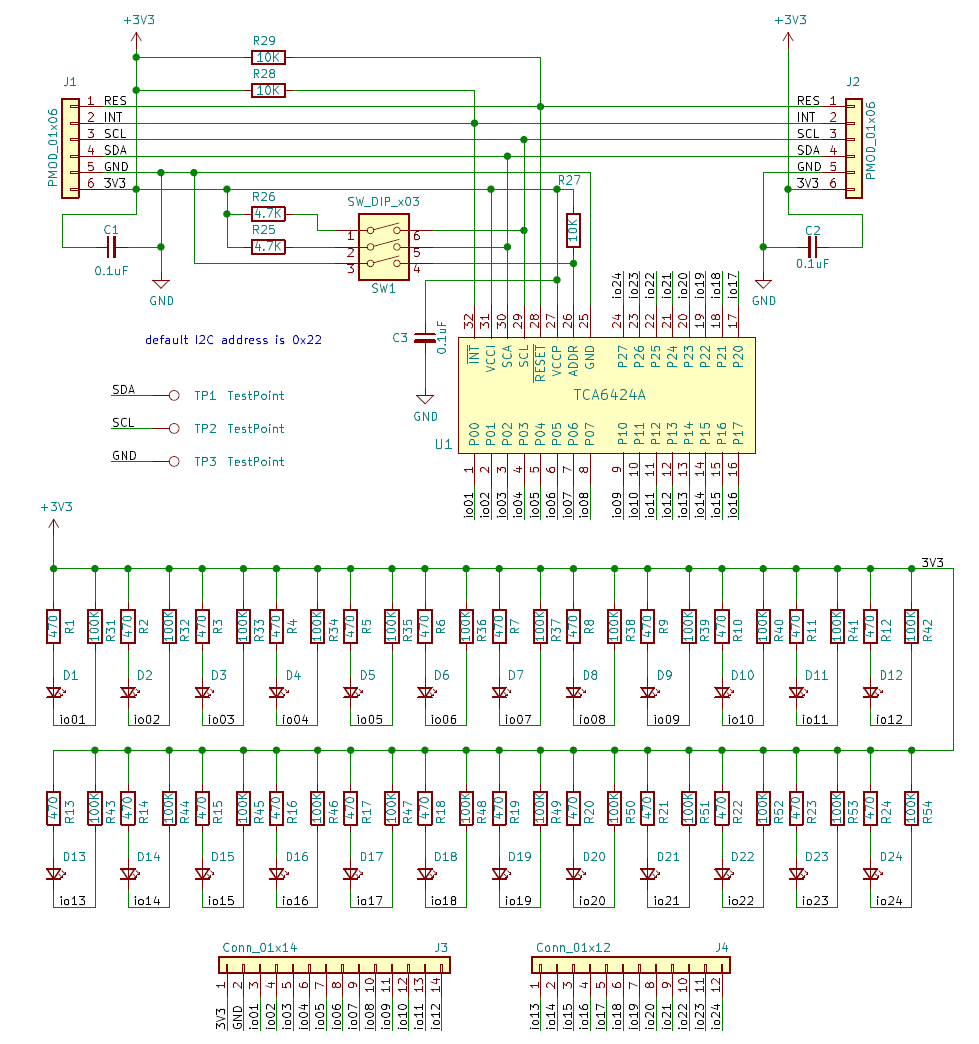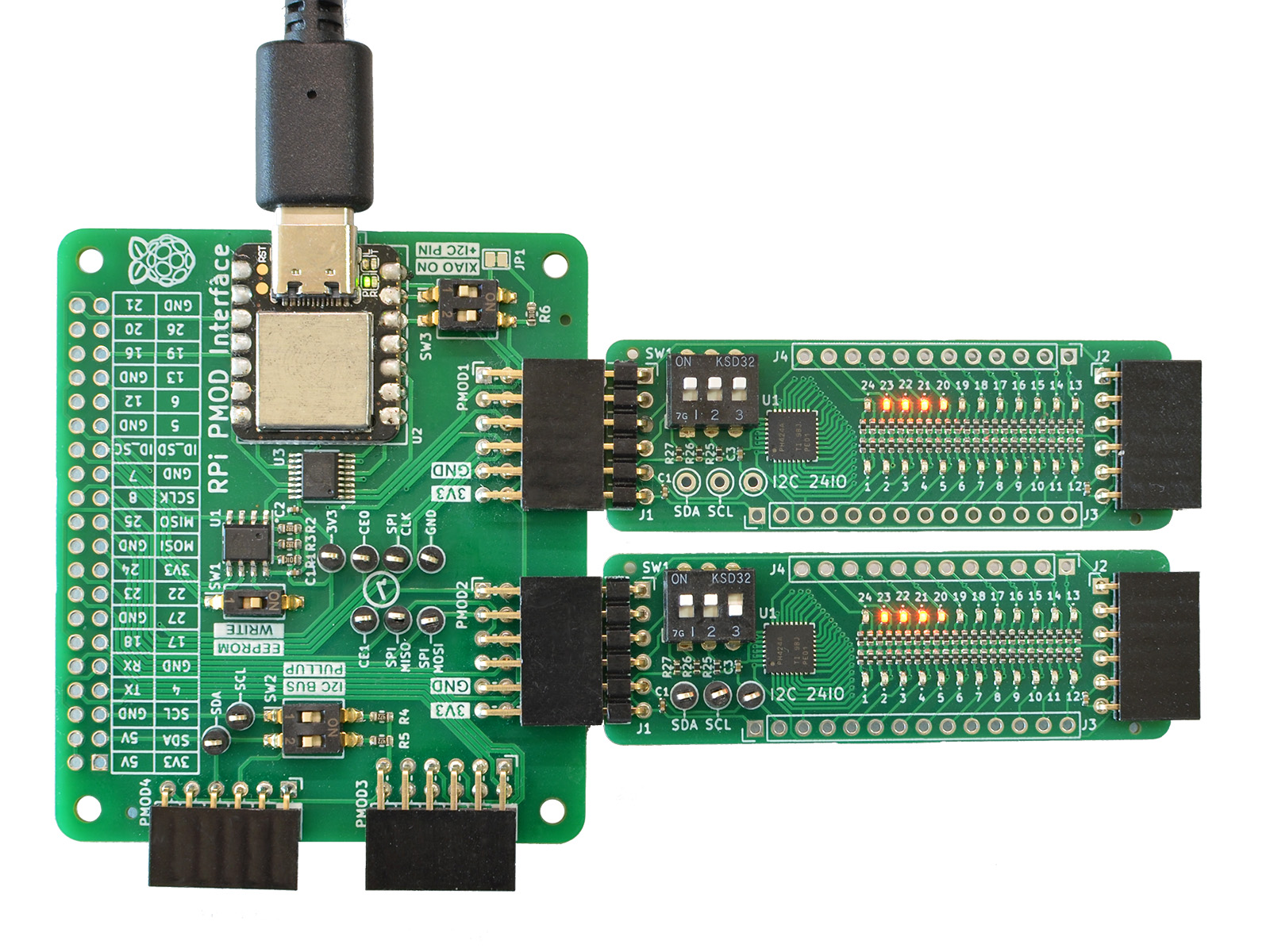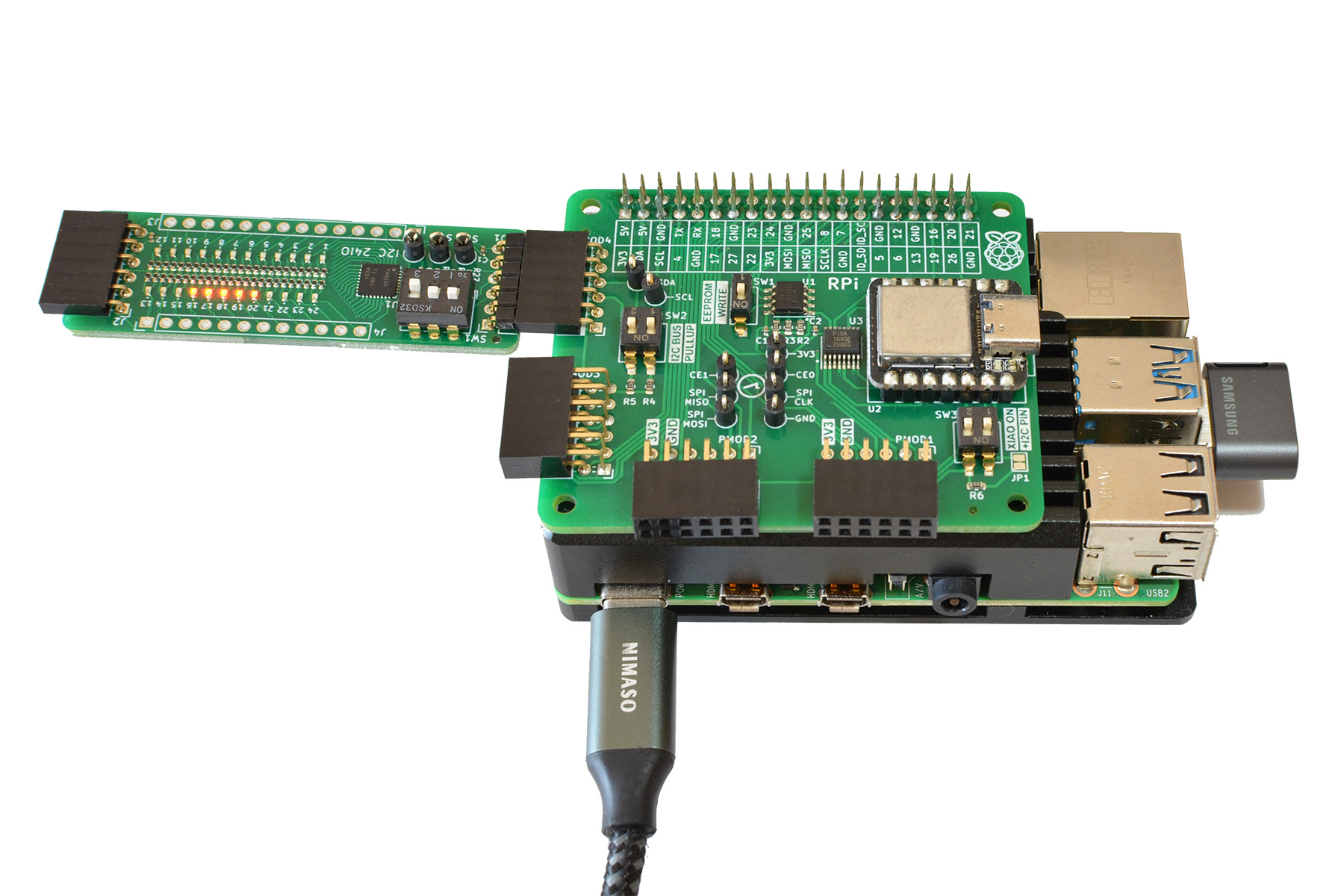I2C24IO PMOD
Description
 This project is a 24-bit digital IO expander module, using the Texas Instruments TCA6424A circuit utilizing I2C. The design is available with two connector types: either Type-6 (I2C single-row) or Type-6A (I2C extended double-row) compatible interface per open PMOD interface standard v1.3.1 by Digilent Inc. PMOD (peripheral module interface) standardizes connectivity with FPGA or microcontroller development boards. To fit all IO pins on a reasonably small PMOD, 0402-size SMD components have been selected.
This project is a 24-bit digital IO expander module, using the Texas Instruments TCA6424A circuit utilizing I2C. The design is available with two connector types: either Type-6 (I2C single-row) or Type-6A (I2C extended double-row) compatible interface per open PMOD interface standard v1.3.1 by Digilent Inc. PMOD (peripheral module interface) standardizes connectivity with FPGA or microcontroller development boards. To fit all IO pins on a reasonably small PMOD, 0402-size SMD components have been selected.
OSHWA Open Source Hardware Self-Certification:
Function
In this module, 24 IO pins are controlled through the two-wire serial I2C protocol. For each individual IO pin, a corresponding LED displays its current status with negative logic. A pins logic level '0' lights up the LED, while level '1' turns it off. DIP switch SW1 enables I2C pull-up resistors if needed, and changes the I2C bus address between 0x22 and 0x23. Two modules can be chained for a total of 48 IO signals. Three Testpoints can be fitted for I2C bus troubleshooting.
Schematic
PCB Gerber
Module Pin Assignments
Type 6:
| Pin | Signal | Description |
|---|---|---|
| 1 | Reset | TCA6424A Reset Pin |
| 2 | Int | TCA6424A Interrupt Pin |
| 3 | SCL | I2C Clock Signal |
| 4 | SDA | I2C Data Signal |
| 5 | GND | Power Supply Ground |
| 6 | VCC | Power Supply (3.3V) |
Type 6A (Pin 1-6 same as Type 6)
| Pin | Signal | Description |
|---|---|---|
| 7 | IO1 | IO signal 1 |
| 8 | IO2 | IO signal 2 |
| 9 | IO3 | IO signal 3 |
| 10 | IO4 | IO signal 4 |
| 11 | GND | Power Supply Ground |
| 12 | VCC | Power Supply (3.3V) |
Note: all pin signals are passed from the module pin header to the opposite pin socket, allowing to chain another I2C module to the I2C bus.
Rasperry Pi I2C Discovery
First we set Reset pin 'high' to enable circuit operation by exiting the reset state. The gpioset command here is part of the 'gpiod' pin control program and library, installed with 'sudo apt install gpiod'.
pi@pi-ms05:~/pmod2rpi/pi-tca6424a $ gpioset gpiochip0 22=1Now we can see the IO expander circuit under address 0x22 (address pin = '1'), or 0x23 (address pin = '0').
pi@pi-ms05:~/pmod2rpi/pi-tca6424a $ i2cdetect -y 1
0 1 2 3 4 5 6 7 8 9 a b c d e f
00: -- -- -- -- -- -- -- -- -- -- -- -- --
10: -- -- -- -- -- -- -- -- -- -- -- -- -- -- -- --
20: -- -- 22 -- -- -- -- -- -- -- -- -- -- -- -- --
...Note: From I2C24IO module hardware version 1.1, two additional 10K pull-up resistors (R28,29) have been fitted to auto-enable the circuit, which eliminates the need to explicitly configure the 'Reset' pin.
Example Code
| Platform | Folder | Description |
|---|---|---|
| Raspberry Pi | pi-tca6424a | I2C module driver 'C' program to control the expander 24 IO output pins individually, and as a set |
| Arduino | xiao-pmod1-i2c24io | Tests I2C ports 0x22 and 0x23. If a module is found, all IO pins are set as 'output=0' (lighting up all LED) |
| Arduino | xiao-pmod1-24iodemo | Creates a lightshow demo by rotating binary patterns over the 24 IO pins, lighting up connected LEDs |
Two I2C24IO PMOD's connected to the RPi PMOD Interface board connector PMOD1 and PMOD2, running the "xiao-double-i2c24io" example program on the Seeeduino XIAO (Cortex M0):
I2C24IO PMOD connected to the RPi PMOD Interface board connector PMOD4, running the "demotca6424a" example program on the Raspberry Pi:
I2C24IO PMOD, connected to a Raspberry Pi 4 through the PMOD2RPI interface board.



